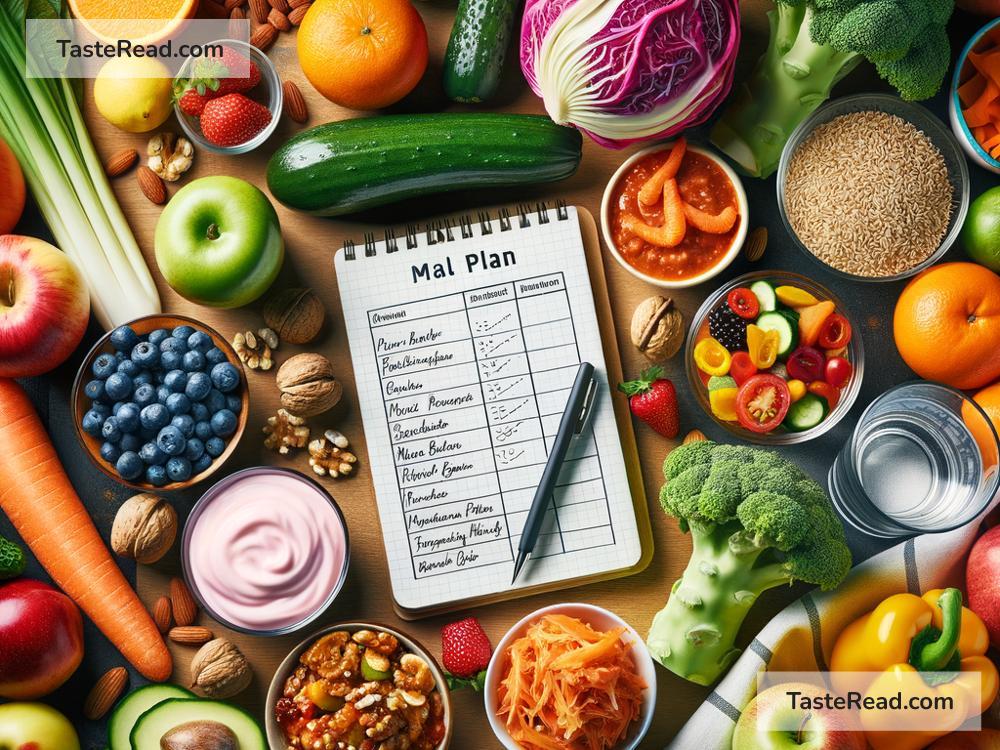The Benefits of a Balanced Diet for Digestive Health: Supporting Gastrointestinal Function
Digestive health plays a major role in how we feel every day. It affects everything from our energy levels to our mood and even our immune system. At the core of good digestive health is the food we eat. A balanced diet can do wonders for the gastrointestinal (GI) system by keeping it running smoothly, preventing discomfort, and supporting overall well-being. Let’s explore how eating the right kinds of food can promote better digestion and a healthier gut.
What Is Digestive Health?
Before we dive into the benefits of a balanced diet, it’s helpful to understand what digestive health means. Your digestive system—also called the gastrointestinal system—is a network of organs, including the stomach, intestines, and liver, that breaks down food into nutrients your body can use for energy, growth, and repair. When this system is healthy, it works efficiently to absorb nutrients and remove waste from your body. But when it’s out of balance, it can lead to problems like bloating, constipation, diarrhea, and even more serious conditions like irritable bowel syndrome (IBS) or acid reflux.
What Is a Balanced Diet?
A balanced diet includes a variety of foods that supply the nutrients your body needs. These nutrients include carbohydrates, proteins, fats, vitamins, and minerals. A good balance involves eating:
- Fruits and Vegetables: Rich in vitamins, minerals, and fiber.
- Whole Grains: Such as brown rice, oats, and quinoa.
- Lean Proteins: Like chicken, fish, beans, and tofu.
- Healthy Fats: From sources like nuts, seeds, and olive oil.
- Hydration: Plenty of water to keep your digestive system functioning smoothly.
By eating a mix of these food groups, you create a diet that supports your overall health—including your digestive health.
How a Balanced Diet Benefits Digestive Health
Here are some specific ways a balanced diet helps support your GI system:
1. Provides Fiber for Smooth Digestion
Fiber is one of the most important nutrients for digestive health. It comes from plant-based foods like fruits, vegetables, whole grains, nuts, and seeds. There are two types of fiber: soluble (which dissolves in water) and insoluble (which adds bulk to stool). Both types are essential for preventing constipation and keeping your bowel movements regular.
Fiber also feeds the good bacteria in your gut, known as your gut microbiome. These microbes help break down food, fight harmful bacteria, and support your immune system. A fiber-rich diet ensures that your gut microbiome stays healthy and balanced.
2. Reduces the Risk of Digestive Disorders
Eating a balanced diet filled with whole, unprocessed foods reduces the risk of common digestive problems like acid reflux, bloating, and constipation. For instance, avoiding overly greasy or sugary foods can help prevent heartburn, while getting enough water and fiber can stave off constipation.
Whole foods also provide nutrients that strengthen the lining of the GI tract. This is especially important for avoiding inflammation and reducing the risk of conditions like IBS or ulcers.
3. Promotes Gut-Friendly Bacteria
Your gut is home to trillions of bacteria, both good and bad. When the good bacteria outweigh the bad, your digestive system works at its best. Foods like yogurt, kefir, sauerkraut, and other fermented products contain probiotics—live beneficial bacteria that can promote a healthy gut microbiome. Combining these with high-fiber foods creates an environment where good bacteria thrive.
Tips for Eating a Balanced Diet
A balanced diet doesn’t need to be complicated. Here are some simple tips to get started:
- Add More Vegetables: Include a variety of colorful vegetables in your meals. Spinach, carrots, broccoli, and bell peppers are great options. Aim for half your plate to be filled with veggies.
- Choose Whole Grains: Swap white bread and pasta for whole grain versions like whole wheat bread, brown rice, or quinoa.
- Eat Lean Proteins: Incorporate options like grilled chicken, fish, eggs, beans, and lentils into your diet.
- Drink Plenty of Water: Hydration is key for digestion. Drinking water helps break down food and move it through your digestive tract efficiently.
- Snack Smartly: Instead of chips, choose nuts, seeds, or sliced fruits like apples and bananas.
- Include Probiotics: Eat foods rich in probiotics, such as yogurt, kefir, and pickled vegetables, to keep your gut microbiome healthy.
Lifestyle Changes That Support Digestive Health
Diet is important, but it’s also helpful to pair healthy eating with good lifestyle habits. Here are a few ways to nurture your digestive system:
- Eat Mindfully: Chew your food thoroughly and take your time while eating. This makes it easier for your stomach to break down food.
- Exercise Regularly: Physical activity helps stimulate digestion and keeps things moving through your GI tract.
- Avoid Overeating: Eating large meals can overwhelm your stomach, leading to discomfort and indigestion.
- Limit Stress: Stress can disrupt your gut and lead to problems like stomachaches or IBS. Try relaxation techniques like meditation or deep breathing.
Conclusion
Supporting your digestive health doesn’t have to be difficult. By eating a balanced diet rich in fiber, whole foods, and probiotics, you give your GI system the tools it needs to function well. At the same time, pairing your diet with healthy lifestyle habits can further enhance digestion and prevent discomfort.
Small changes, like drinking more water, eating more vegetables, or adding probiotics to your meals, can make a big difference in how you feel. With consistency and mindfulness, you can enjoy the benefits of a healthy digestion system and a happier, healthier life. Start today by making choices that prioritize your gut health—it’s worth it!


